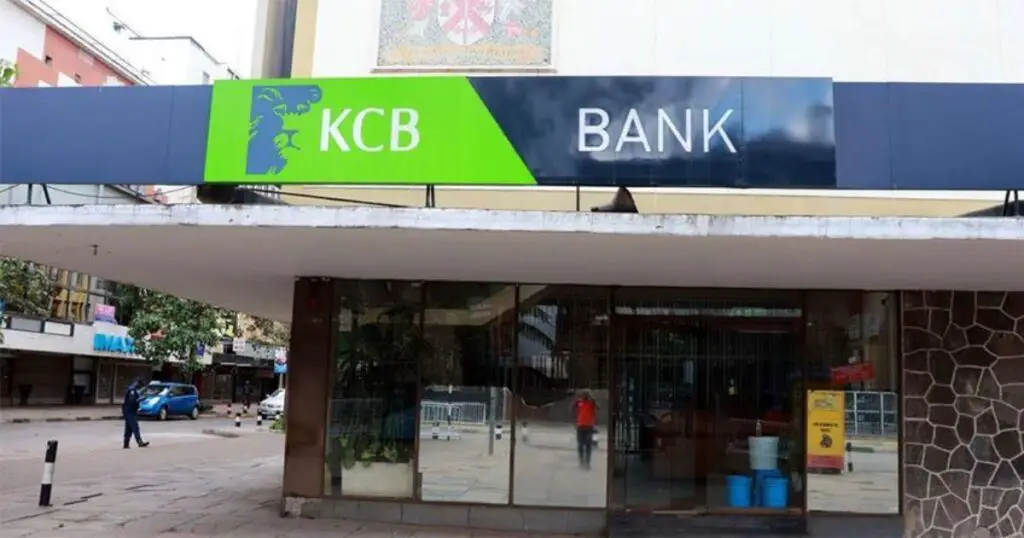- KCB Kenya has entered a deal with the Kenya National Chambers of Commerce and Industries (KNCCI) to offer loans to over 50,000 members of the chambers
- The two entities entered a three-year strategic partnership, opening a credit line for Small and Medium-Sized Enterprises (SMEs) across the country
- Beyond the credit line, members of the KNCCI will also access non-financial solutions, including advisory, networking opportunities and training
KCB Kenya has entered a deal with the Kenya National Chambers of Commerce and Industries (KNCCI) to accelerate access to loans to over 50,000 members, mostly small and medium-sized enterprises (SMEs).
The two entities entered a three-year strategic partnership, opening a credit line for Small and Medium-Sized Enterprises (SMEs) across the country.
The partnership also involved KCB Foundation, which will offer financial capacity building to KNCCI members across the country.
KCB Chief Commercial Officer Samuel Makome said the partnership would enable the bank to catalyse sustainable development by facilitating access to loans to the critical SME sector, including the JuaKali (Informal industry).
“We are confident that the strategic partnership with the National Chambers of Commerce will address the financial and non-financial needs of the SMEs across all the 47 counties, offering critical financial intervention as the country accelerates economic recovery efforts,” Makome said.
KCB to train SMEs, offer networking opportunities
Beyond the credit line, members of the KNCCI will also access non-financial solutions, including advisory, networking opportunities, training, and free account maintenance fee for enterprises with over USD 1,000 in their accounts.
Commenting on the same, KNCCI President Richard Ngatia said the partnership would enable all the 47 Kenya National Chambers of Commerce Chapters to access affordable credit flow to grow their businesses.
Kenya: KCB to loan KSh 250 billion to women entreprenuers
“Our efforts as KNCCI are focused on the core action areas for SME support to facilitate the generation of wealth through their businesses. The partnership with the largest bank in Kenya offers us an opportunity to create a sustainable credit line for our member’s businesses growth,” Ngatia said.
KNCCI partners with KDC to give SMEs financial access
The partnership comes weeks after KNCCI signed a cooperation agreement with the Kenya Development Corporation (KDC) to offer access to loans to enterprises.
On November 29, 2022, the two partners formalised an agreement to see enterprises access long-term loan facilities between KSh 10 million and KSh 500 million.
The partnership would see over 3,000 KNCCI members—largely SMEs and large enterprises—access financing from KDC at an affordable rate, thus enabling these enterprises to manage the credit shocks and risks better as they recover and grow their businesses.
Kenya: KCB posts profits as loan loss reduces, incomes rise
KDC Acting Director General Christopher Huka said the engagement would catalyse enterprisees to recover from multiple shocks that have hit businesses in the past three years, including the lasting impacts of the Covid-19 pandemic, the war in Ukraine and low productivity in agriculture arising from climate change.
“We are excited to work with the Chambers of Commerce on this historic transaction, as we strongly believe that the financial facilities provided by KDC will serve as a catalyst to the sustainable development of commerce and industrial enterprises in the country through the provision of critical financial interventions to SMEs and accelerate economic recovery,” Huka said.
Challenges that SMEs in Kenya face
The two partnerships come when SMEs in Kenya continue to face challenges in doing business. Multiple data, including by the African Association of Entrepreneurs, show that challenges vary from lack of access to loans, inadequate managerial training, slow adoption of technology, and tough regulations and laws.
Due to a lack of access to credit, the association notes that many SMEs in Kenya cannot access cheap loans to scale up their operations. One of the reasons is that most commercial banks ask for tangible collateral before giving out loans. Since most entrepreneurs have no land titles to use, they cannot qualify for the loans.
“Most SMEs in the informal sector do not use banks and prefer to do their transactions using cash. This means that they do not build credit and have no relationships with banks where they can access loans whenever needs arise,” the association notes.

